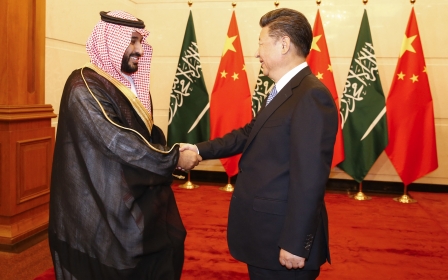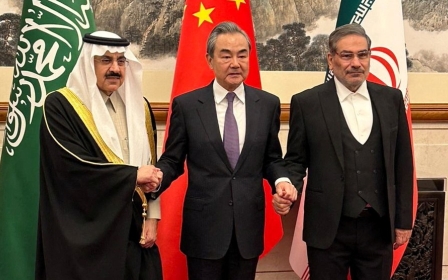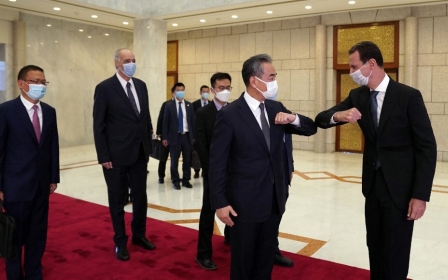China 'not in US ballgame' in Middle East, top official says
The US is in "a different ball game” in the Middle East compared to China, a senior US official said on Wednesday, rejecting comparisons of an equal competition with Beijing in the region.
“It’s a little bit short sighted to compare what the United States does in the region and what China does in the region, when you look at our posture…our long-standing relationships,” Mara Karlin, assistant secretary of defence for strategies, plans and capabilities, said.
“It’s quite a different ball game” added Karlin, at an event organised by the Middle East Institute in Washington DC.
China has made recent geopolitical strides in the Middle East and is signalling the region as a priority at a time when traditional US allies are concerned over Washington’s commitment to their security.
President Xi Jinping received a red carpet welcome in Saudi Arabia during a landmark visit in December. China imports more than a quarter of the kingdom's total crude exports and has sold 5G and Huwaei technology to Riyadh to the chagrin of Washington.
New MEE newsletter: Jerusalem Dispatch
Sign up to get the latest insights and analysis on Israel-Palestine, alongside Turkey Unpacked and other MEE newsletters
Beijing’s ties with Abu Dhabi and Riyadh have emerged as a thorn in the side of security cooperation with Washington.
Talks to sell F-35 fighter jets to the UAE were suspended after Abu Dhabi raised concerns about the restrictions Washington was seeking to impose on the sale. The Biden administration said the UAE's use of China's 5G technology risked the leak of sensitive defence information to Beijing.
But China's most high-profile diplomatic foray came in March when it brokered a deal between Saudi Arabia and Iran to restore diplomatic ties. Despite Washington saying that Saudi Arabia kept it up to date on the talks, Middle East Eye previously reported how the deal caught US policymakers by surprise.
As the rivalry between Washington and Beijing heats up, US officials have increasingly taken a tough line on China in the region.
Last year, Barbara Leaf, the top State Department official on the Middle East, told lawmakers that China was "get[ting] away with murder" selling drone technology to Tehran at the same time it forged closer links to Gulf states.
But analysts say China’s good ties with both Iran and Gulf monarchies have put it in a unique position to bridge divides that the US is unable to, particularly amid a tide of regional rapprochement.
Saudi Arabia and the UAE have both moved to welcome Syrian President Bashar al-Assad - a key Iranian ally - back into the Arab fold, most recently hosting him at an Arab League summit.
Yet the US remains the region's premier military power. Even as China brokers talks between Riyadh and Tehran, Washington continues to safeguard energy flows from the Gulf. On Monday, the US commissioned a new US-led maritime task force for the Middle East at its 5th Fleet headquarters in Bahrain.
"China doesn't have a blue water navy," Douglas Silliman, a former US ambassador to Kuwait and Iraq previously told MEE, referring to a maritime force that can operate far from home. "It doesn’t have US readiness posture or prepositioned troops. The US Navy still oversees the security of China’s oil flows."
Middle East Eye delivers independent and unrivalled coverage and analysis of the Middle East, North Africa and beyond. To learn more about republishing this content and the associated fees, please fill out this form. More about MEE can be found here.




